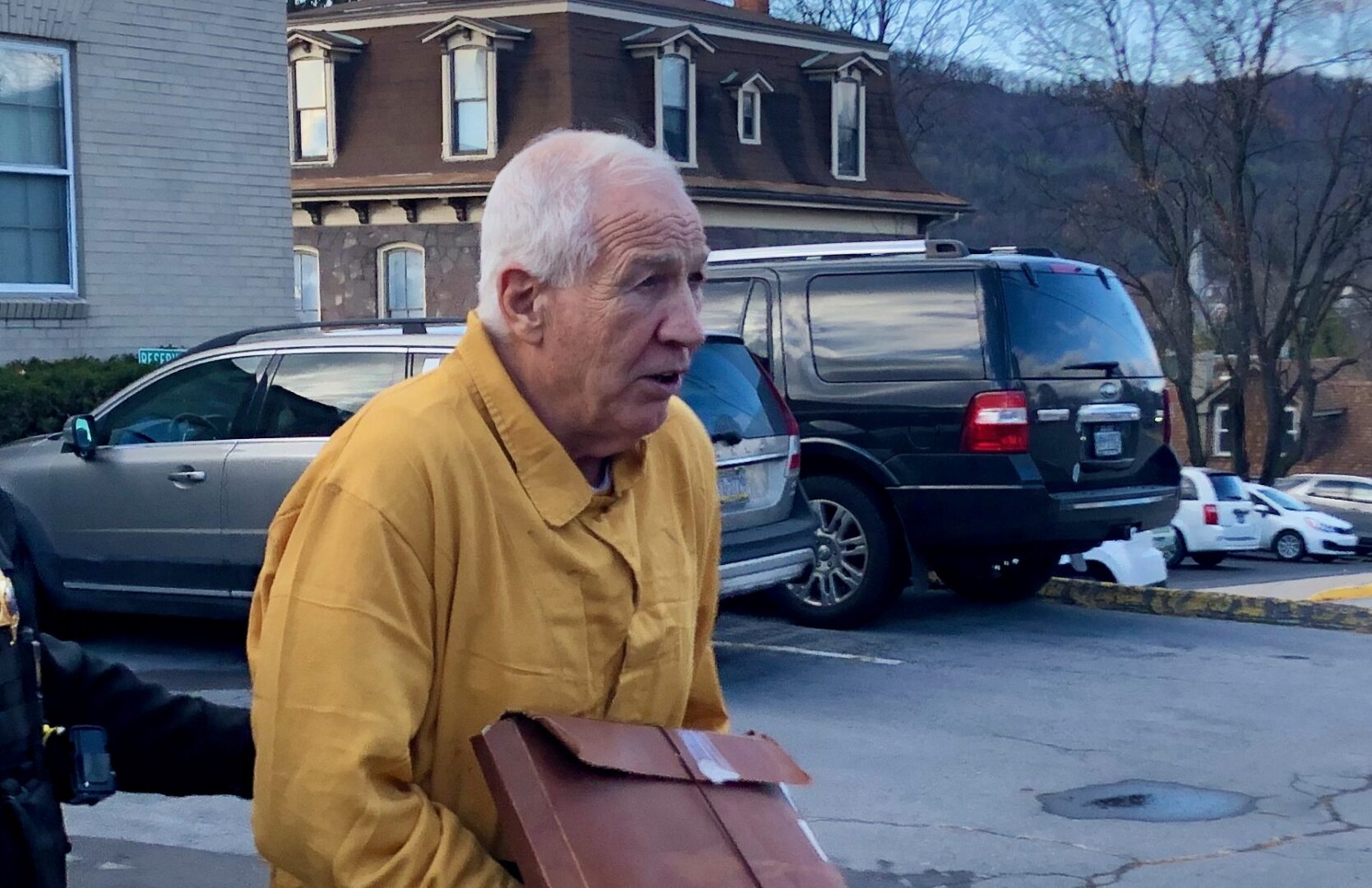More than a decade after his conviction on child sexual abuse charges, Jerry Sandusky is once again asking a judge for a new trial.
Al Lindsay, the attorney for the former Penn State football assistant coach and Second Mile charity founder, filed the amended motion for an evidentiary hearing and new trial on Wednesday in Centre County Court. The motion cites evidence that has come to light since Sandusky’s conviction, including what Lindsay says is a newly uncovered interview bolstering Sandusky’s claim that individuals who accused him were influenced by attorneys and a controversial therapy practice.
An individual interviewed by police in 2011 said that he didn’t view anything Sandusky did as sexual in nature and that he was always comfortable around him, Lindsay wrote. But in 2018, according to the filing, he told an attorney bringing civil lawsuits against Penn State that Sandusky molested him.
Lindsay alleged the transcript “was indicative of the methodology” used by some attorneys to influence the testimony of boys who initially denied any wrongdoing by Sandusky. He claims the accusers — some who were identified as victims at Sandusky’s trial and some who filed civil claims — underwent “repressed memory therapy” at the behest of their attorneys and recalled what Lindsay says were false allegations.
The disputed therapy practice has been raised by Sandusky’s attorneys in past appeal proceedings, but victims who testified at those and their therapists denied that it was used.
Lindsay recently filed a 136-page expert report by attorney and psychologist R. Christopher Barden, who called repressed memory therapy “inherently unreliable,” and a “historic disaster.” Barden wrote that an analysis of the newly uncovered interview transcript and testimony of others who worked with the same attorney and therapist revealed a pattern of recovered memories in what he described as being either negligence or a scam to manipulate witnesses.
“Decades of research and scientific debate have clarified over and over again that the notion of traumatic events being somehow ‘repressed’ and later accurately recovered is one of the most pernicious bits of folklore ever to infect psychology and psychiatry,” Barden wrote. “This folklore provided the theoretical basis for ‘recovered memory therapy’ – arguably the worst catastrophe to befall the mental health field since the lobotomy era.”
Lindsay also again raises the issue of an off-the-record meeting at a State College hotel between attorneys, the judge overseeing the case and a district magistrate before Sandusky’s December 2011 preliminary hearing. That meeting, Lindsay alleges, set the June 2012 trial date in advance and rushed the case to court with insufficient time for Sandusky trial attorney Joe Amendola to prepare.
“Even highly specialized experts in such cases could not properly prepare and try such a complex case on the ‘likely-conviction-death-march’ schedule,” set at the meeting, Barden wrote, adding that Amendola “behaved at times like an attorney determined to harm his client’s case, with no competent science experts,” no motion for a hearing on admitting scientific experts and convincing Sandusky not to testify on his own behalf.
Lindsay alleged that one reason the case was rushed forward was to hasten the conclusion of the university-commissioned investigative report led by Louis Freeh — whom in the past Lindsay has accused of colluding with prosecutors — and the consent decree between Penn State and the NCAA that imposed sanctions on the football program.
Sandusky was convicted in June 2012 on 45 counts related to child sexual abuse and was sentenced to 30 to 60 years in state prison.
In 2019, he was resentenced to the same term, with credit for time served, after an appeal court ruled mandatory minimums were improperly applied at his initial sentencing.
At the resentencing, state victim advocate Jennifer Storm read letters from four of Sandusky’s victims and another from a victim’s mother, each describing mental anguish, isolation and the lifelong effect the abuse had on the victims and their families.
“There are no words to reflect the pain and misery he has inflicted,” one wrote, adding that he has suffered from post-traumatic stress disorder.
“‘You have destroyed my family,’ the mother of one victim wrote. “I cannot forgive you for that.”
In imposing the resentencing, specially-presiding Judge Maureen Skerda said the victims carry “a legacy of trauma.”
Sandusky, 79, is serving his sentence at Laurel Highlands state prison.



